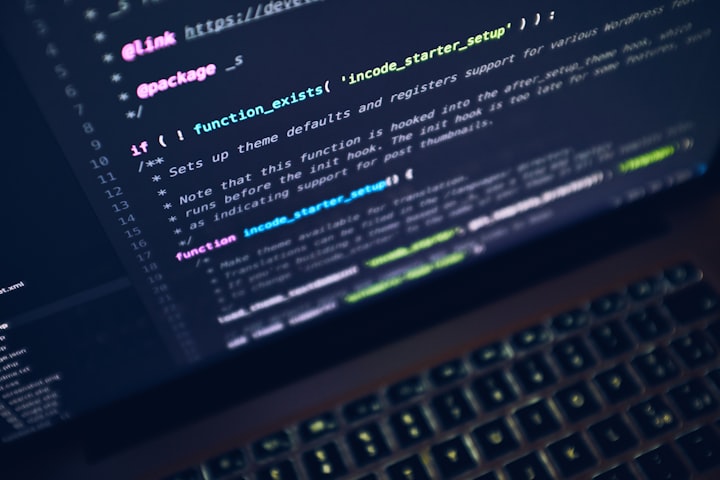
"The countries with the highest robot density have among the lowest unemployment rates. Technology and humans combined in the right way will drive prosperity.”
Ulrich Spiesshofer, ex-CEO, ABB Ltd.
Artificial Intelligence
(AI) has been a buzzword for a while now and there is a lot of speculation and discussions around whether it is the future or not.
AI has been around for a few decades and has evolved significantly over the years, but the last few years have seen a surge in its development and applications. There are many arguments for and against AI as the future. Some believe that AI will revolutionize the way we live and work, while others believe it will bring disastrous consequences.
AI has made tremendous progress, with advances in machine learning, natural language processing, and computer vision leading to the creation of more intelligent and capable AI systems. This has already had a significant impact in areas such as finance, healthcare, and transportation, where AI is being used to automate processes, make better predictions, and provide more personalized experiences. It may lead with,
- Increased efficiency and productivity: AI can automate tasks, reducing the time and effort required to complete them.
- Improved accuracy and precision: AI systems can analyze large amounts of data and identify patterns, leading to more accurate and precise results than manual methods.
- Enhanced decision-making: AI can provide valuable insights and recommendations, helping individuals and organizations make informed decisions.
- New and improved products and services: AI has the potential to lead to the development of new and improved products and services.
- Cost savings: AI can reduce labor costs and increase efficiency, leading to cost savings for organizations.
- Personalized experiences: AI can be used to create personalized experiences for users, such as customized recommendations and advertisements.
- Improved accessibility: AI can help people with disabilities and those who face barriers to access information and services.
- Healthcare advancements: AI has the potential to improve the accuracy of diagnoses, reduce wait times, and improve patient outcomes in the healthcare industry.
Future :
Going forward, AI is expected to play an even larger role in society. It will be used to solve complex problems and address pressing global challenges, such as climate change and disease outbreaks. AI will also create new opportunities for economic growth and job creation, particularly in areas such as robotics, automation, and cybersecurity.

Here are a few of the key trends that are likely to shape the future of AI:
Integration with other technologies: AI is likely to become increasingly integrated with other technologies, such as the Internet of Things (IoT), 5G networks, and blockchain, to create new and more advanced solutions.
Increased demand for AI ethics and regulation: As the use of AI becomes more widespread, there will likely be increased demand for regulations and standards that ensure that these systems are used ethically and responsibly. This will help to address concerns about AI's impact on employment and privacy, among other issues.
Greater emphasis on transparency and accountability: As AI becomes more prevalent, there will likely be a greater emphasis on ensuring that these systems are transparent and accountable. This will help to ensure that AI is used in a responsible and ethical manner, and will help to build trust in these systems.

Challenges :
AI has the potential to bring many benefits, it also presents a number of challenges and ethical concerns. For example, there are concerns about the displacement of jobs, the potential for AI systems to perpetuate existing biases, and the risks posed by autonomous weapons and other forms of AI-powered military technology.
Also we may expect the challenges in,
1. Bias and fairness: AI models can reflect and amplify existing biases in training data, leading to discriminatory outcomes.
2. Explainability: Many AI models, especially deep learning models, are considered "black boxes" as it can be difficult to understand how they arrived at a particular decision.
3. Safety: The deployment of AI systems raises concerns about their potential to cause harm, either intentionally or unintentionally.
4. Privacy: The collection and use of large amounts of personal data by AI systems can threaten privacy and personal freedom.
5. Job displacement: AI has the potential to automate many jobs, leading to job displacement and the need for workers to retrain for new roles.
6. Security: AI systems can be vulnerable to hacking and other security threats, potentially leading to serious consequences.
7. Regulation: There is a lack of clear and consistent regulation for AI, leading to uncertainty about how these systems should be governed and ethical considerations.
Despite these challenges, it is clear that AI is an essential part of the technological landscape, and will play an increasingly important role in shaping the future. To ensure that AI is developed and used in a responsible and ethical way, it is crucial that we continue to invest in research and development, and engage in open and honest discussions about the benefits and risks of this powerful technology.

In Conclusion, the future of AI is likely to be shaped by a number of factors, including advancements in technology, changes in consumer behavior, and the evolution of AI ethics and regulation. While there are many challenges and uncertainties ahead, the potential benefits of AI are significant, and it is likely to play a key role in shaping the future of technology and society. It is indeed the future, but it is up to us to determine what kind of future we want it to be. We have the opportunity to shape AI in a way that benefits everyone, but we must act now to ensure that this future becomes a reality.
About the Creator
Mukesh
As a future lover, I'm always looking ahead to what's next and how I can make the most of new technologies and opportunities.






Comments
There are no comments for this story
Be the first to respond and start the conversation.